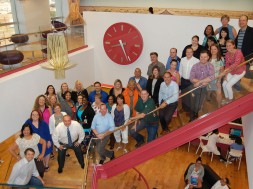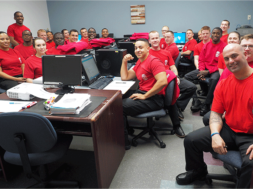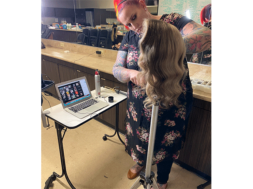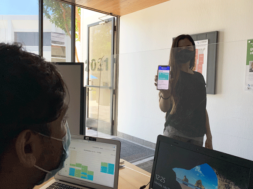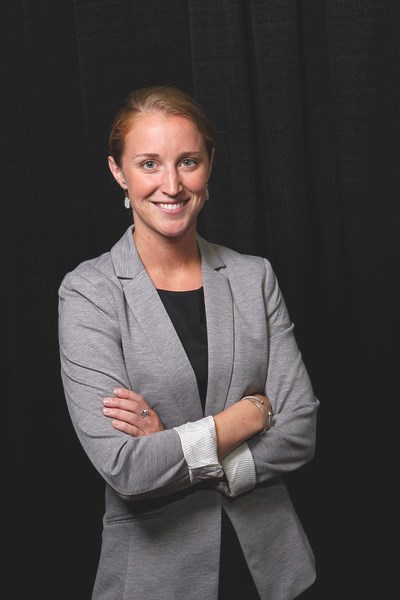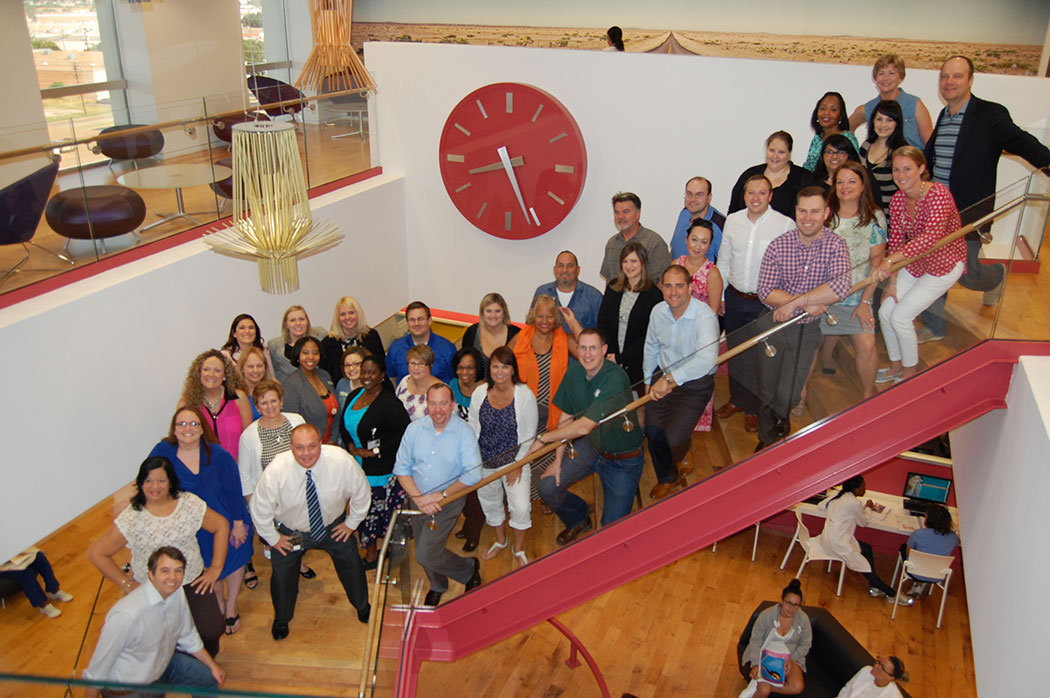
Three Decades of Training Campus Leaders
By Kelley Blanchard, Vice President of Professional Development, Career Education Colleges and Universities
Over the last several decades, Career Education Colleges and Universities (CECU), formally APSCU, has worked with sector leaders and member institutions to design continuing education programs to support the professional development of individuals and administrations within the sector. The career education sector has a unique niche of demographics, from the students we educate to the challenges our institutions face both day-to-day and on Capitol Hill, and we at CECU seek to provide help and guidance for advancing all components of postsecondary career education. Our mission has remained clear and focused: to serve institutions that provide career-specific educational programs that reinforce America’s workforce.
Higher education with a career focus is the best opportunity millions of Americans have at joining the middle class, and it is the responsibility of our sector to help those students connect to their future. Serving this unique membership of career-focused institutions, CECU strives to offer professional development opportunities to serve the administration, faculty and staff that are on the front line of educating the next workforce. Our educators need to prepare lessons to fit the nontraditional student demographic, making it possible for students to achieve their degrees even while juggling a variety of life distractions and complications. Our administrators are challenged with policy regulations and standards as well as accreditation changes to their institutions as a whole, while simultaneously dealing with the nationwide challenges of retention rates, budgetary limitations and staff turnover. CECU strives to strengthen the sector by offering resources to both members and nonmembers in response to the unique challenges they face.
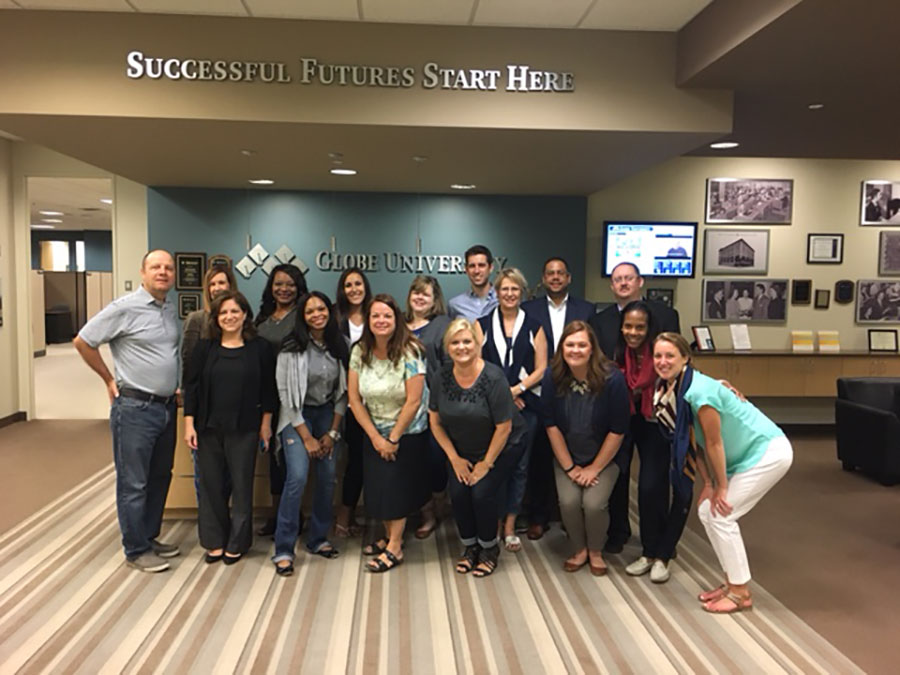 Just this summer, CECU graduated the 31st class of the Leadership Institute in July at Globe University in Minneapolis. The CECU Leadership Institute has become a legacy program for sector leaders, and has established alumni consisting of school presidents, CEOs and leaders. Originally designed in 1985 by a group of school leaders, the program sought to, and continues to, help train and educate the next generation of institution executives. The Institute is designed as a “boot camp” to offer an in-depth training opportunity for new campus directors or administrators.
Just this summer, CECU graduated the 31st class of the Leadership Institute in July at Globe University in Minneapolis. The CECU Leadership Institute has become a legacy program for sector leaders, and has established alumni consisting of school presidents, CEOs and leaders. Originally designed in 1985 by a group of school leaders, the program sought to, and continues to, help train and educate the next generation of institution executives. The Institute is designed as a “boot camp” to offer an in-depth training opportunity for new campus directors or administrators.
Many of the hundreds of graduates have returned to attest that the contacts they made at this program were some of the most influential of their entire careers. The current program brings selected graduates back to the Institute to present their expertise they have developed as a testament to the success of the program.
These alumni often reminisce on the earlier, more extreme, boot camp setting of the Institute back in the day. Participants from 1985-2000 can relay stories of staying in dormitories with restrictions on guests, curfews and alcoholic beverages. It was the age of IBM PCs with dual floppy drives, hallway payphones and typewriters. There were fewer email distractions, and texting during class hadn’t even become a thought.
Since those days, the Leadership Institute has developed to adapt to the current needs of the upcoming campus leader. Our institutions now have a much different landscape to traverse and manage, and our leaders need to have the resources and tools to navigate it. In the age where downsizing and consolidating are terms consistently lingering on the horizon, our campus administrators often need cross-training to cover many departments. Campus directors need to have knowledge of budgetary limitations as well as program needs to be competitive. Admissions directors need to recognize the role they play in the retention of students as the first contact for a prospective graduate. Career services departments need to bridge the gap between the applicant they see touring the campus and the student they counsel beyond their degree program.
Attendees of the Institute participate in four days of training, and leave with a well-rounded understanding of campus administration. The program follows the course of the student lifecycle to demonstrate the integral role each department plays in building student success. The sessions exemplify how each department connects to the others to support students through their progression from prospects to graduates.
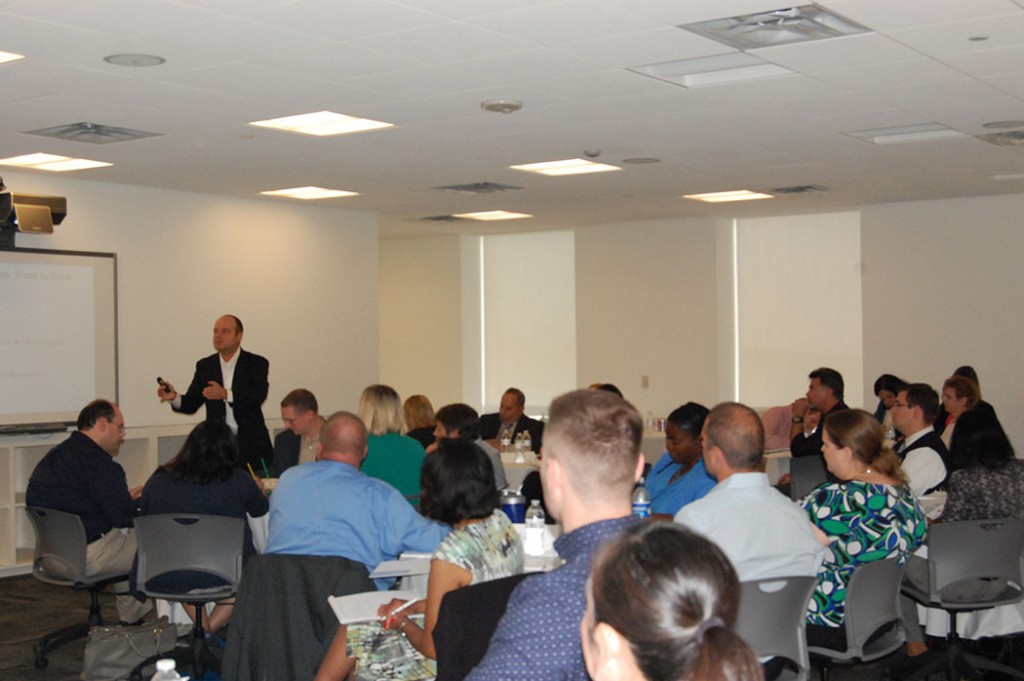 The foundation of the workshop’s program is professional and personal leadership development. Day one of the Institute focuses on leadership discussions, character training and personal branding. To ensure our institutions’ success, we must focus on developing leaders who have the motivation and skills to help us succeed. An exercise practiced on the first day is “Mastering your Personal Brand.” Prior to introductions and a chance to get to know the other attendees, registrants are asked one by one to stand up and present a one-minute monologue of how they would describe their role, career goals and aspirations, similar to introducing yourself to a possible employer if you were to meet them in an elevator. Many attendees have testified to bringing this exercise back to their campuses to help their teams develop the skills of personal branding as well as gain an understanding of how they view their roles and experiences on campus.
The foundation of the workshop’s program is professional and personal leadership development. Day one of the Institute focuses on leadership discussions, character training and personal branding. To ensure our institutions’ success, we must focus on developing leaders who have the motivation and skills to help us succeed. An exercise practiced on the first day is “Mastering your Personal Brand.” Prior to introductions and a chance to get to know the other attendees, registrants are asked one by one to stand up and present a one-minute monologue of how they would describe their role, career goals and aspirations, similar to introducing yourself to a possible employer if you were to meet them in an elevator. Many attendees have testified to bringing this exercise back to their campuses to help their teams develop the skills of personal branding as well as gain an understanding of how they view their roles and experiences on campus.
The Institute’s program then transitions in day two to inquiry generation and measurements for marketing and admissions. Many of the conversations throughout the week revolve around the language we use to shape the conversation for the outcomes we seek. These sessions demonstrate that it is vital to establish effective communication across departments early in the applicant process in order to foster a support network for student. The responsibility cannot fall solely on the admissions professionals to bring in new students. It should be a candid effort from everyone at the institution. From encouraging all faculty and administrators to be ambassadors within their personal networks, to connecting with the community for campus events, the more positive interest and traffic we can create the more we can steer away from the terminology of “leads” and “prospects” to “applicants” and “students.”
One of the most meaningful takeaways over the last two years at the Institute is an example that came from David Pauldine, past president of Devry University. Mr. Pauldine shared that in administrative meetings someone would place a graduation cap in the center of the workspace. Nothing would be said about the cap, nothing is held inside, the cap is simply there to represent the students.
This practice is to remind administrators of the unified goal of leading students to graduation and act as a reminder that conversations about students should occur as if the student is always in the room.
This is another example of why the language we use as administrators is so important to the message we are presenting.
A reoccurring quote through the Institute, defines interactions similar to these as “Bridging and Blocking.” Attendees will learn the skills to bridge department silos and prevent role definitions from blocking progress. The leadership faculty also discusses the relationships and sometimes strained interactions between the admissions professionals, financial aid services and the career services teams. The overall goal is to guide applicants through the process of becoming career professionals, but each department has a different role in doing so, and each ultimately holds differing priorities. For example, it is important for our admissions representatives to communicate with the financial aid department to identify the boundaries they must comply with resulting from compliance regulations and audits. The career services team must likewise understand the obstacles that the admissions and financial aid offices face in getting students in the door in the first place. In the simplest of examples, we hear stories of new applicants being scared off by the number of hoops to jump through, new faces to meet and forms to complete before ever getting to discuss class schedules. The easiest way to alleviate that intimidation is to have your staff be ambassadors to the next step in the applicant’s process. Coach your admission staff to walk them down to the financial aid office, create a schedule to support the needs of the applicants and introduce the student to the career service team and program from day one to keep the focus on the desired outcome.
A takeaway from the attendees from Stratford University was known as the “Bowl of Obstacles.” Many of the applicants coming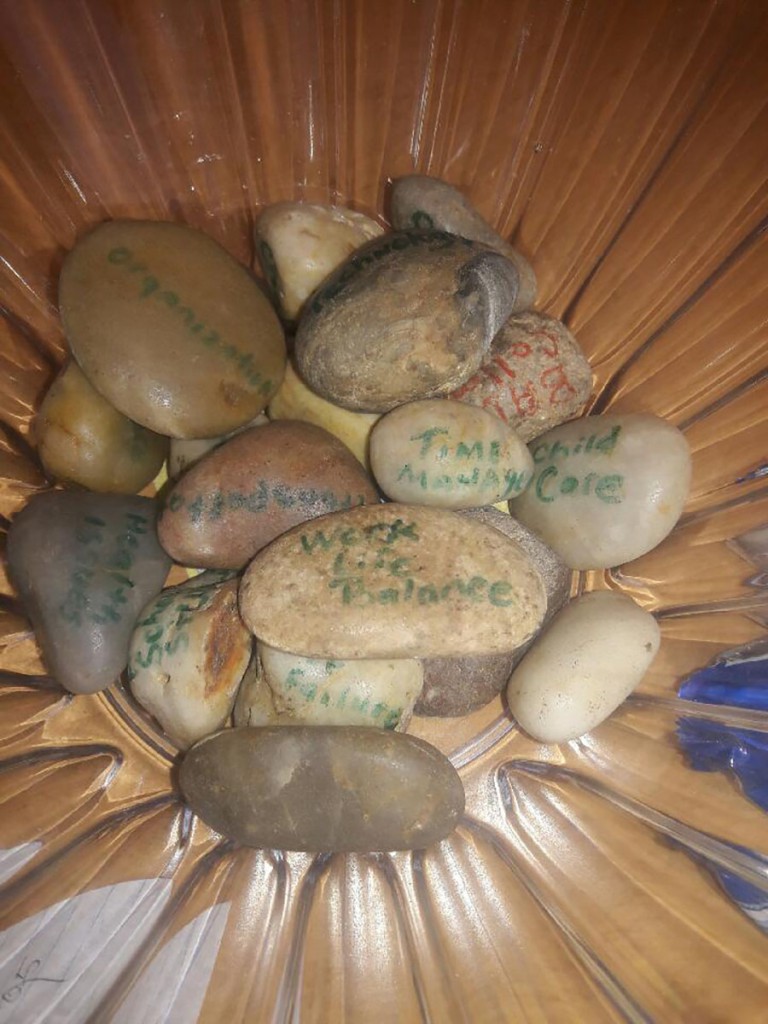 into our institutions have a number of different obstacles in their way. The application and interview process can be intimidating to anyone unfamiliar with that procedure and our schools can lose a number of applicants through the steps if they do not identify and propose solutions to the obstacles that may be in the way of our applicants becoming students. The “Bowl of Obstacles” is a simple concept to write a variety of obstacles that applicants may be facing on rocks and place the bowl of them in the individual admissions or interview rooms. Even though an applicant may not be able to articulate their personal challenges, they can easily see some or all of them written down and know that other students face them too. The admissions counselors can be prepared with suggestions and connections to help alleviate some of the stresses from these challenges.
into our institutions have a number of different obstacles in their way. The application and interview process can be intimidating to anyone unfamiliar with that procedure and our schools can lose a number of applicants through the steps if they do not identify and propose solutions to the obstacles that may be in the way of our applicants becoming students. The “Bowl of Obstacles” is a simple concept to write a variety of obstacles that applicants may be facing on rocks and place the bowl of them in the individual admissions or interview rooms. Even though an applicant may not be able to articulate their personal challenges, they can easily see some or all of them written down and know that other students face them too. The admissions counselors can be prepared with suggestions and connections to help alleviate some of the stresses from these challenges.
The third day of the Institute moves from the early admissions-focused stage of the student lifecycle to address student success with a focus on academics and graduation placement, as well as administrative data and reporting. Educating students is the focus for any institution, but in our sector, many students face challenges beyond test grades, class times and assignments. Many career education students represent a nontraditional student population that juggle full time jobs, family responsibilities, military and veteran commitments as well as financial constraints. These challenges are not only seen on the front line of the administration through the application and financial aid process, but also in the classrooms. Our students may need different learning environments simply because they are at a different stage in their lives. Our institutions can learn to be flexible with teaching styles and class schedules, but only if our administrators can inspire and empower their professors to do so. By creating classroom environments that enable students to strive for their professional goals, our professors and deans can assist in the career services and placement steps of the student’s advancement. Again continuing the cycle and bridging the relationships of departments.
As we nearing the end of the program, some of the most consuming and overarching topics across the sector continue to be compliance and government relations, which are addressed on the fourth day of the Institute. In sessions delivered by both school officers and CECU representatives, attendees will walk through the process of institutional compliance and the current regulations and policies affecting the sector in the current administration. For some attendees, this is the first time they have had the opportunity to receive a comprehensive breakdown of regulations affecting our sector and the postsecondary education as a whole, and it is imperative to understanding the current climate and the future of the sector.
To put all of these lessons into context, the Institute follows a case study format to demonstrate these through hands-on practice with an example campus. Attendees work in groups throughout the week to solve problems and challenges that arise on their case study campus, and gather each morning for a large problem-solving walk through. Day five, the final day of the Institute, is spent discussing leadership strategies to bring back to their respective campuses or institutions, as well as final proposal presentations to tackle the issues that have arisen throughout the case study content.
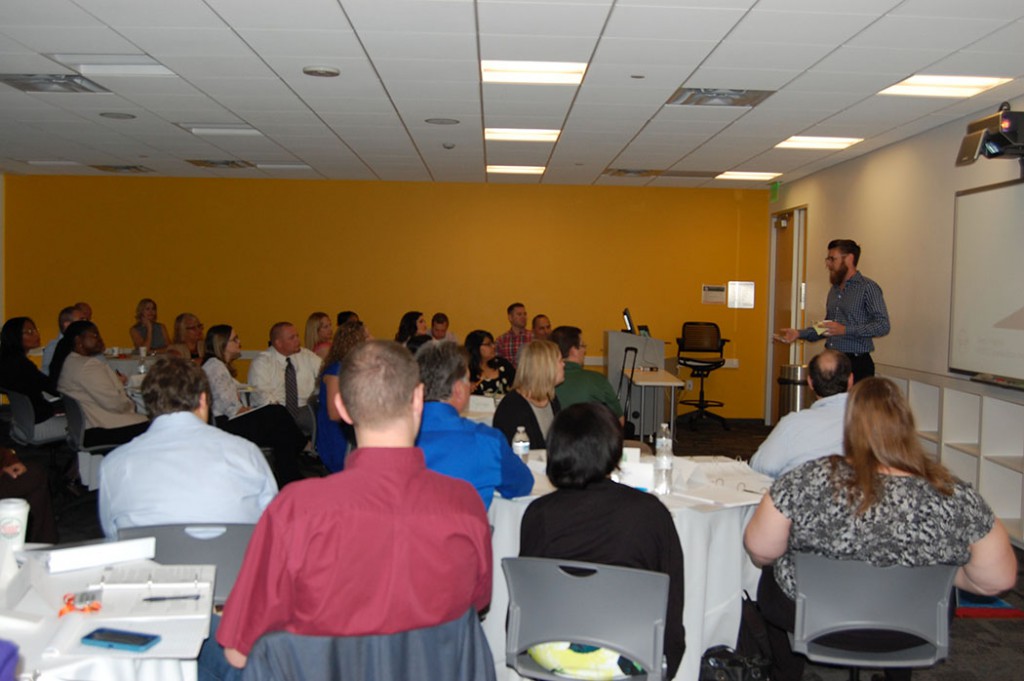 The dedication and passion of the Leadership Institute faculty bolsters the success of this workshop. The presenters of the Institute are some of the most passionate leaders in education. Each bringing their own experiences on campus and in the larger scope of education, they have all claimed to get more and more out of the Institute each year. The Leadership Institute is one of the only programs where professionals get hands-on assistance and experience from the top leaders in the field, including our moderator and chair of the program, David Pauldine, past president of Devry University; Martha Lanaghen, CEO of the Sparrow Group; Jason Pistillo, president of University of Advancing Technology; Vince Norton, partner of Norton | Norris; and many more. This faculty truly believes in the mentorship fostered by the Institute, and often stay for the entirety of the program to act as personal resources for each class.
The dedication and passion of the Leadership Institute faculty bolsters the success of this workshop. The presenters of the Institute are some of the most passionate leaders in education. Each bringing their own experiences on campus and in the larger scope of education, they have all claimed to get more and more out of the Institute each year. The Leadership Institute is one of the only programs where professionals get hands-on assistance and experience from the top leaders in the field, including our moderator and chair of the program, David Pauldine, past president of Devry University; Martha Lanaghen, CEO of the Sparrow Group; Jason Pistillo, president of University of Advancing Technology; Vince Norton, partner of Norton | Norris; and many more. This faculty truly believes in the mentorship fostered by the Institute, and often stay for the entirety of the program to act as personal resources for each class.
The Leadership Institute serves a niche of campus leaders. While a week out of the office can be seen as a large commitment and setback for progress in an attendee’s role, attendees note that the workshop packs at least four months’ worth of training into just four days, making it well worth the time out of the office. Not only will attendees leave with a network of esteemed mentors, colleagues and contacts, but they will bring back the skills to become more effective leaders for their departments, their campuses and our sector.
To learn more about Career Education Colleges and Universities, visit our website or contact us through our staff page. We are passionate about serving members of postsecondary career education and will continue to strive to produce professional development programs to serve the needs of our members.
KELLEY BLANCHARD was named Vice President of Professional Development for Career Education Colleges and Universities (CECU) in September, 2015. Prior to this role, she managed the educational programming for the association as the Manager of Professional Development. Kelley has built up the professional development opportunities for CECU members to expand the scope and quality of programming provided in both webinars and live meetings.
Prior to joining CECU, Kelley managed continuing education programming for a variety of medical specialty societies including the American Gastroenterological Association and the Society for Healthcare Epidemiology of America. Within those societies she managed live and online continuing education programs for medical professionals. She has managed the accreditation process through to compliance under the standards of both the American Council for Continuing Medical Education and the American Nursing Credentialing Center.
Kelley is a graduate of James Madison University in Harrisonburg, VA.
Contact Information: Kelley Blanchard // Vice President of Professional Development // Career Education Colleges and Universities // 202-336-6835 // Kelley.Blanchard@career.org // Social Media: Twitter: @CECUed, LinkedIn: https://www.linkedin.com/in/kelley-blanchard-7b85b330
